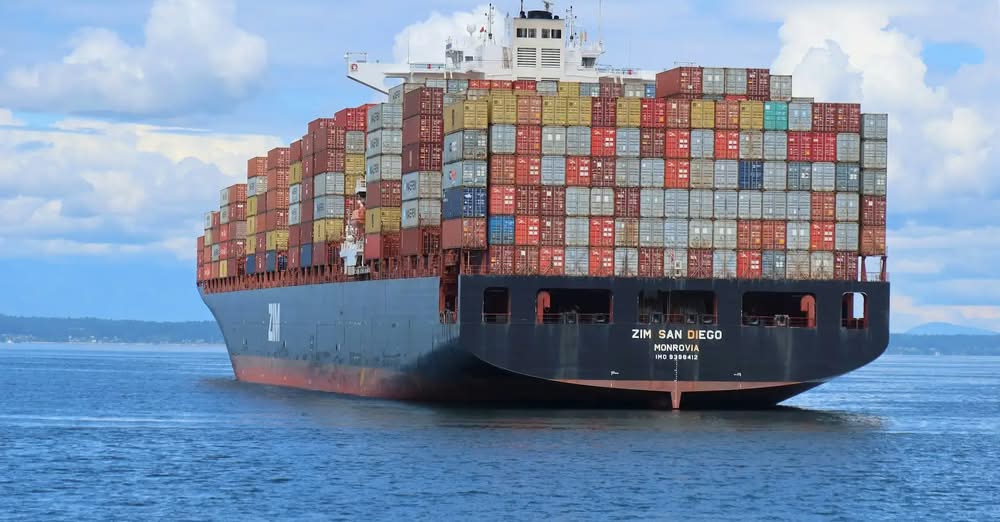As climate change accelerates and temperatures reach historic highs around the globe, one of the most pressing and overlooked challenges is protecting the global food supply. The agricultural sector is being tested like never before—not just by extreme weather events, but also by the rising heat that shortens shelf lives, disrupts supply chains, and increases the risk of spoilage in transit. Amid this growing uncertainty, reefer containers—temperature-controlled shipping containers—are emerging as essential tools in preserving food quality and ensuring long-term food security.
These containers, designed to transport perishable goods across vast distances while maintaining strict climate control, are becoming critical infrastructure in the modern food supply chain. From smallholder farms in tropical regions to massive food distribution hubs in urban centers, reefer containers are making it possible to maintain freshness and safety in the face of rising temperatures. Their role is no longer limited to logistics—they’re fast becoming frontline defenders in the global fight against hunger and food waste.
Heatwaves Are Shortening Shelf Life and Increasing Spoilage
As heatwaves become more frequent and intense, the window between harvest and spoilage has grown increasingly narrow. In many regions, fruits and vegetables that once lasted a week post-harvest now begin to degrade in just a few days without refrigeration. This trend is especially alarming in countries already grappling with food insecurity. In some cases, up to 40% of produce is lost before reaching the consumer due to heat-induced spoilage.
Reefer containers provide an immediate, scalable solution. Their ability to maintain stable, low temperatures from the moment food is harvested to its final delivery point is a game-changer. When placed at collection centers, ports, or even on farms, reefer containers help bridge the gap between field and fork. They act as both mobile cold storage and secure transit environments, reducing the amount of food wasted due to fluctuating temperatures and delayed transportation.
Food Supply Chains Are Growing Longer and More Fragile
As the global population grows and dietary preferences diversify, food supply chains are becoming increasingly complex. Products that once traveled a few hundred kilometers now cross continents. Blueberries from Chile are consumed in Germany, lamb from New Zealand appears on American dinner tables, and rice from India makes its way across Africa. But as these chains stretch, they also become more vulnerable to temperature fluctuations—especially in the era of climate change.
Reefer containers are vital in preserving the integrity of long-haul supply chains. They ensure that food remains within precise temperature ranges for days or even weeks, regardless of external climate conditions. Whether it’s -18°C for frozen meats or 2°C for fresh dairy, these containers allow producers and distributors to confidently ship their goods without sacrificing quality.
Developing Nations Rely on Cold Chain Infrastructure to Reduce Post-Harvest Losses
In many developing countries, agriculture is a cornerstone of the economy. Yet post-harvest losses remain alarmingly high, often due to a lack of cold chain infrastructure. Without access to refrigeration, farmers are forced to sell produce quickly—often at lower prices—or risk losing their entire yield. Rising temperatures only intensify this problem, making rapid spoilage a daily challenge.
Reefer containers offer a flexible and relatively affordable solution. When deployed as part of a mobile cold chain strategy, they can be placed in rural areas, near farms, or at markets to extend the lifespan of harvested crops. This reduces pressure on farmers to sell immediately, giving them better control over pricing and access to broader markets. In regions most impacted by climate change, reefer containers can be the difference between profit and poverty, or even hunger and nourishment.
Protecting Perishable Exports in a Volatile Climate
For many export-driven economies, perishable goods such as seafood, dairy, fruit, and flowers represent a major source of income. These goods are highly sensitive to heat and humidity, making them especially vulnerable as global temperatures rise. The quality of these exports directly impacts trade partnerships and economic growth, making temperature control a top priority.
Reefer containers are now indispensable to the export strategies of countries such as Ecuador (bananas), Kenya (cut flowers), and Thailand (seafood). These containers ensure that products maintain their value during transit, protecting against rejection at foreign ports due to spoilage or quality degradation. In a global market where buyers expect consistent quality and safety standards, reefer containers provide the confidence needed to keep trade flowing—despite the climate challenges at hand.
Urban Food Distribution Depends on Last-Mile Cooling
As the world urbanizes, cities face increasing pressure to feed dense populations with limited space and aging infrastructure. Urban heat islands—areas where temperatures are significantly higher due to concrete and asphalt—compound the problem. Transporting fresh produce, meat, and dairy into these hot, crowded environments presents a unique logistical challenge that traditional supply chains struggle to meet.
Reefer containers offer a smart solution for last-mile delivery. Deployed at city distribution centers, supermarkets, or food markets, these containers act as localized cold storage units that reduce the need for large refrigerated warehouses. They help maintain cold chain continuity right up to the point of sale, preventing spoilage in the final stretch of delivery.
Reefer Technology Is Evolving to Meet Sustainability Demands
The demand for reefer containers is growing, but so is the need for them to be energy-efficient and environmentally sustainable. Older models have been criticized for their high energy consumption and reliance on refrigerants with large carbon footprints. Fortunately, new innovations are addressing these concerns. Today’s reefer containers are increasingly equipped with solar panels, hybrid cooling systems, and eco-friendly refrigerants.
Manufacturers are also investing in smart sensors, remote monitoring, and AI-driven optimization tools that reduce energy waste and improve operational efficiency. As the climate crisis deepens, these advanced reefer systems not only protect food but also contribute to reducing the environmental impact of global shipping.
Food Security Depends on More Than Just Production
Producing food is only half the battle—getting it safely to consumers is the other. In a warming world, food production faces challenges from droughts, floods, and extreme weather. But even when crops are grown successfully, without a reliable cold chain, much of the harvest never reaches the dinner table. This disconnect highlights why food security must be viewed holistically, with storage and distribution infrastructure playing just as important a role as farming.
Reefer containers are becoming foundational to that infrastructure. By offering scalable, mobile, and resilient cooling solutions, they bridge the gap between production and consumption. Governments, NGOs, and private companies are beginning to recognize that without temperature-controlled logistics, even the best farming practices can fall short.
Conclusion: Reefer Containers Are Essential for a Warming World
The impact of climate change on the global food system is undeniable—and intensifying. As temperatures rise, so do the risks to every step of the supply chain, from harvest to consumption. Reefer containers, once considered a niche logistics solution, have emerged as essential assets in protecting perishable goods, reducing food waste, and ensuring the stability of global food networks.
From farms in tropical regions to urban distribution hubs, these containers are not just preserving goods—they’re preserving livelihoods, health, and economic stability. Their role in addressing food insecurity, empowering trade, and supporting climate resilience makes them indispensable to our future. As the world gets hotter, our food systems must get smarter—and reefer containers are leading the way.















